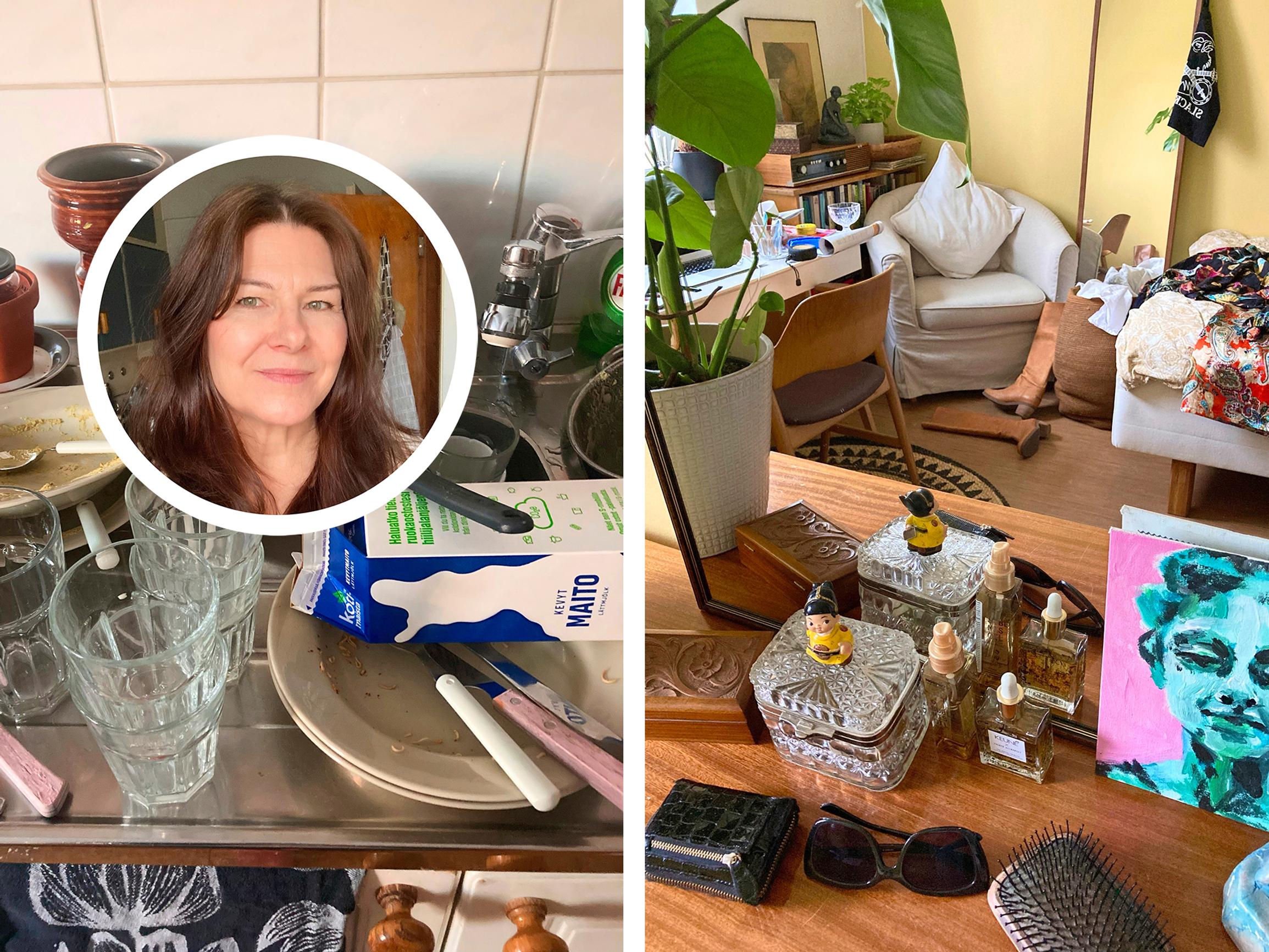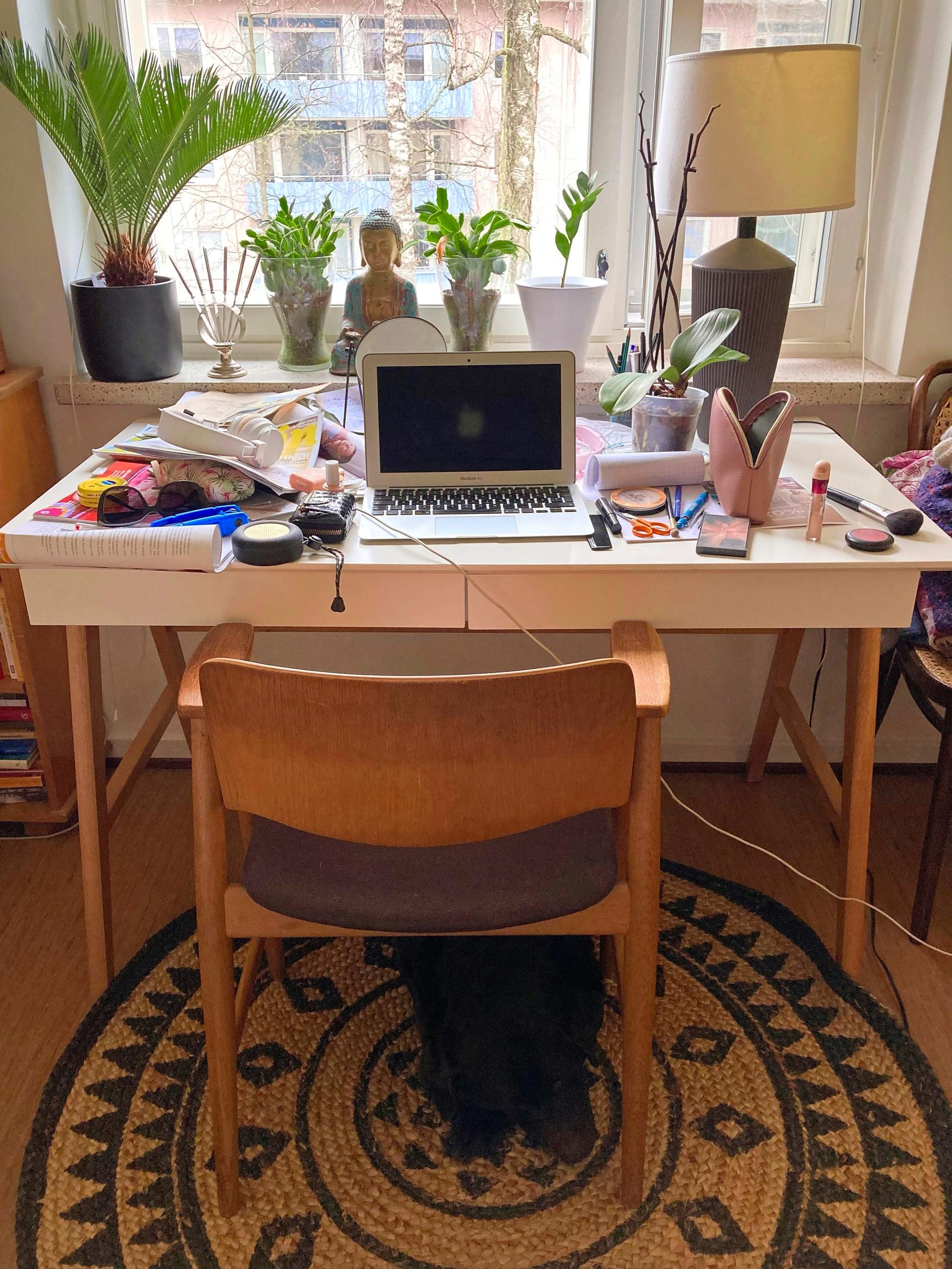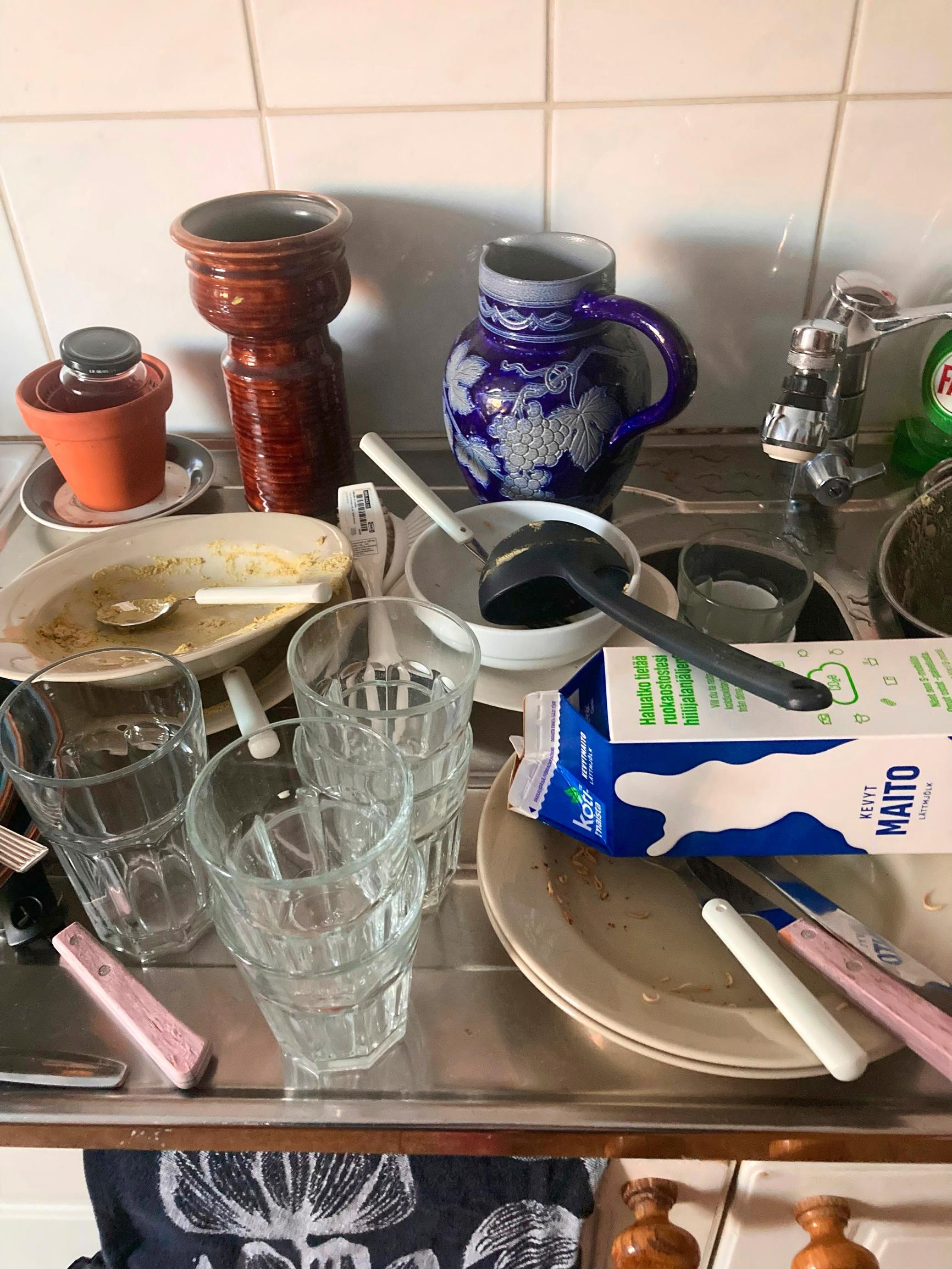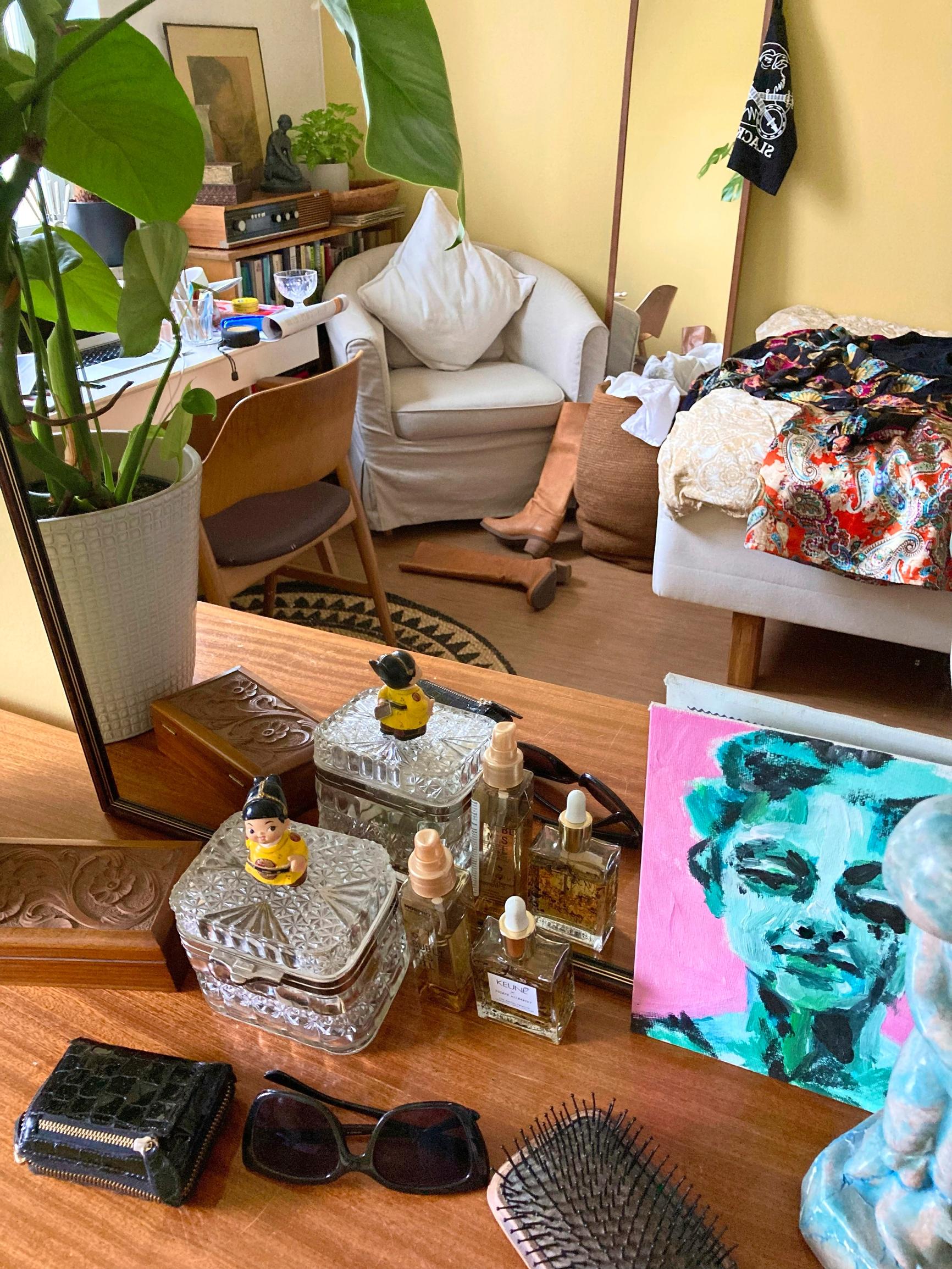
Am I naturally messy? A cluttered home may actually say something good about you
When journalist Leena Lukkari left her skis in the entryway for a year and chaos took over yet again, she decided to see if her personality was to blame. She discovered that clutter might not be a problem at all.
When my skis stayed in the entryway for a year, I started to wonder why my home is always in disarray. Each day’s worn clothes end up on a chair, and my desk is cluttered with a stack of bills, magazines, notes, and receipts. One time, I even lost a store loyalty card in that stack while it was still sealed in its envelope.
There’s always a box or pouch at home that’s in transit—maybe it’s going to a closet, a storage unit, a friend, a flea market, or recycling. I walk by it over and over without seeing it, because I’m so caught up in my own thoughts.
Then, when I do finally notice it, I decide it must go right away. But first, I need to unpack groceries, make dinner, clear the table, walk the dog. Soon, I’ve forgotten about it again. The next time I see it, I’m genuinely surprised—oh right, that box!
After this happens often enough, it becomes part of the scenery. I got used to those skis, too. Some people have summer curtains for warmer months and winter curtains for colder months, while I have skis all year round.


My dream home is colorful and feels like an artist’s haven, where daily life and decor aren’t reined in by hard rules. In that kind of place, you can leave the dinner table as it is for a bit, because why shatter the relaxed mood? Shoes can stack up in the hallway, because they’re just shoes.
I like it when things are a little topsy-turvy. I appreciate bohemian homes that look as though everything just fell into place—even though, in reality, there’s some thought behind it.
The only issue is there’s a very fine line between a relaxed vibe and actual chaos.
I love it when, post-cleaning, everything is in order. Each time, I promise myself that from now on I’ll always put things back right away. I won’t leave papers or magazines lying around, won’t forget anything on the hall table, won’t let laundry pile up outside the closet, and won’t leave dishes soaking on the counter.
But then, it happens again—bam! Disorder wins. In that moment, I feel a brief panic. When did it all spiral out of control?


My super-tidy friend never even sees a lone drop of water on her counter. If she opens a cabinet or drawer, it’s perfectly arranged. I have no idea how she does it. Were we just born differently—some of us messy, some of us neat?
According to the Myers-Briggs personality framework, that may actually be true. Katherine Briggs and Isabel Myers developed the MBTI system in the 1940s. This theory splits people into 16 personality types, suggesting these traits are inborn and quite stable.
Doctor of economics and docent Tiina Brandt became interested in studying personality back when she was a student. She wrote her doctoral thesis on personality and leadership, and she now researches and teaches on the topic.
“All personality types enjoy a neat environment, but it’s not the top priority for everyone,” Brandt says.
“If parents were sharp and systematic, you’d think that trait would naturally pass along to their kids. It doesn’t always work that way.”
A tendency toward disorder could genuinely be part of who I am. So how does chaos conquer empty surfaces and neatly arranged cabinets?
Often, I’m deep in a busy work phase. When I’m fully focused on that, I barely register skis in the hallway. Only when a visitor is on the way do I see my home with fresh eyes and hurry to make it presentable.
Being organized is also a learned skill and habit. If parents are organized, you’d think the kids would pick it up. But it doesn’t always turn out that way, says psychologist and psychotherapist Leea Mattila.
“Often, we either become just like our parents or swing in the opposite direction.”
Mattila calls it the pendulum effect. If the household was very strict about order, the child might crave more freedom in their own home. If the environment was lax, the child might end up longing for strict rules.
Brandt adds that personality often plays a strong role. Even if parents are super organized and raise the child that way, personal traits might override it.


When I was little, my room was always chaotic, which isn’t that unusual. The floor was covered with dollhouse furniture, craft supplies, drawing tools, pine cones, stones, and yarn scraps. The mess never bothered me then, because my room was like a treasure chest. In my friends’ tidy rooms, I didn’t know where to begin playing.
My mother believed the home should be clean and beautiful, but she didn’t mind if rugs were crooked or if the kids were noisy. Unfortunately, she sometimes felt inadequate. She’d wonder out loud whether her mother-in-law, who went to home economics school, thought her housekeeping measured up. Or she’d compare herself to the neighbor—a mom of four—whose spotless kitchen always smelled of fresh baking.
I’ve inherited both my mother’s bohemian sense of beauty and her feeling of not quite measuring up. Why does a messy home sometimes feel embarrassing, even if no one’s there to see it?
“Shame comes from the fear that someone could judge us,” says Leea Mattila.
We might feel ashamed because neatness is linked to efficiency, organization, and good planning—all things our culture esteems.
“We might also compare ourselves to a mythical mother figure who has everything under control,” Mattila says.
“I’ve inherited both a bohemian aesthetic and a feeling of not being enough from my mother.”
You don’t even need mythical figures for comparison. Maybe I’m unconsciously comparing my home to the beautiful ones in magazines or on social media. Or I recall my friend’s immaculate, gleaming house and think everyone else has it together. I’d never judge anyone else for a messy home, but I’m quick to judge myself.
Mattila suggests noticing that judgmental voice and questioning it. Who is that strict, critical presence inside us? Once you identify it, it’s easier to calm down.
“Our mind carries prior experiences into the present. Something right now triggers those old words and feelings,” Mattila says.
“Mess can be a good thing, too. It can show you’re prioritizing. If life is hectic, you have to choose where to focus—what’s vital and what can wait.”


Sometimes, albeit rarely, a mess can point to feeling unwell, like burnout or depression.
“Still, messiness isn’t automatically a sign of trouble. Disorder is in the home and in the eye of the beholder. The key is whether it actually bothers you,” Mattila adds.
Our stance on mess might be the key to tackling it. Is my main problem the mess itself, or the fact that I can’t accept it?
“That’s crucial, because how you solve it depends on the true issue,” Mattila says.
If I want to shed my old habits and become more systematic, it’s a big lifestyle adjustment.
“Mess can also be a positive thing, showing you can keep your priorities straight.”Leea Mattila
“It takes a lot of thinking and practice. It’s rare to just pick up a new routine and stick with it forever.”
If I realize the bigger problem isn’t the mess itself but how it makes me feel, then the next step is addressing those emotions. Maybe it’s not so terrible that my desk is always cluttered.
“Maybe that’s what a workspace is for—to hold all the unfinished things. You might need a space at home where they’re free to linger.”
Mattila suggests asking what’s the worst that happens if you don’t tidy up right this second. Often, the answer is nothing.
“Could we also accept that life isn’t ever really all wrapped up?”


A necessary evil—that’s how I view housework too. It doesn’t pay, and there’s little appreciation. You have to find motivation elsewhere. If you’re not naturally drawn to tidiness, you need to look for inspiration.
“A spontaneous, intuitive person can turn cleaning into something more playful. Listen to a podcast, put on music, or call a friend while you tidy up so it’s not so dull,” Brandt suggests.
I already do that. I put on Finnish Roope Lipasti’s book in my headphones and start hanging laundry. I can’t help but laugh while shaking out each item and placing it on the rack.
I’m willing to dial back some of my bohemian style in favor of being more organized. I’ll keep a to-do list for home tasks, too. Lists anchor my work life, and without them I’d leave plenty undone—just like those skis.
But I don’t want to fight against my nature. I enjoy being this daydreamer who gets lost in thought. I love my home, and I love focusing on the little pretty corners while ignoring what I’ve decided not to see.
I choose to let myself have a few messy spots. Maybe they’re just proof I’ve got more important things on my mind.


